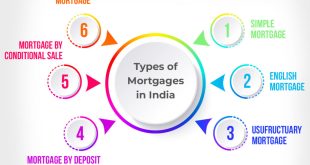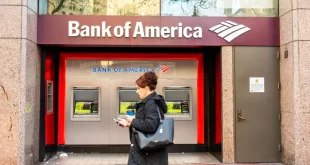Select examines what your monthly payments truly cover and breaks down the mortgage application process.

When buying a home, a consumer takes out a mortgage, which they then agree to pay back over a certain period of time in tiny, equal monthly installments. Although it can be confusing if you’re going through it for the first time, for many homebuyers, the mortgage procedure is a crucial aspect of becoming a homeowner. Here’s all the information you need to understand how mortgages operate and what your monthly payment actually covers.
If you want a mortgage, when should you acquire one?
Stated differently, obtaining a mortgage is appropriate when purchasing a home but lacks the funds to cover the whole cost of the property up front. Consider this: If you’re trying to purchase a home, you probably won’t want to pay the entire amount in cash at that same moment.
Making a down payment, or contributing a percentage of the home’s value up front, and obtaining a bank loan to pay the remaining balance are two ways to avoid that massive one-time transaction. You can live in the house and make any renovations you choose in return for having to pay back the money you’re borrowing from the bank (your mortgage).
How do I submit a mortgage application?
You should prepare yourself before submitting a mortgage application. To start, make sure your credit score is as high as it can be by checking it, and make sure there are no errors in your credit report that could be lowering your score. To calculate your future interest rate, mortgage lenders will review both of these. You will spend less each month for your mortgage because a higher credit score will result in a reduced interest rate.
Jumbo Loans Are Available To Borrowers
Experian offers free access to your credit record and score. Should your credit score be found to be lacking, consider utilizing a service like *Experian BoostTM. This particular program examines your transactions for consistent utility and subscription service payments by linking to your bank account. The activity is then used to help raise your FICO® Score.
When you believe your credit score is good enough, you should consider the kind of mortgage you want to apply for.
The most popular type of mortgage is a conventional mortgage, which typically just needs a 3% down payment. But keep in mind that there are stringent rules regarding the debt-to-income ratio for this kind of mortgage, so it might not always be the best choice for a buyer.
With Federal Housing Administration (FHA) loans, a buyer can afford a larger debt-to-income ratio because only a 3.5% down payment is needed. Jumbo loans are available to borrowers who need to borrow more than $726,200. It should be noted that this is the conforming loan maximum for 2023; however, limitations are subject to change annually and may vary based on the area’s cost of housing or the type of property in question.
The U.S. Department of Agriculture, or USDA, loans are intended for those who wish to buy a property in a rural location and enable them to do so with a zero percent down payment. Veterans Affairs, or VA, loans are intended for veterans and their spouses.
Mortgage Would Need monthly payments
Knowing the specific loan terms you’re seeking for can also be useful. The majority of lenders will provide periods between 10 and 30 years, with 15- and 30-year mortgages being the most typical. A 15-year mortgage would need monthly payments for 15 years, during which time the house should have been paid off. In addition, you would have 10 years to pay off a 10-year mortgage or 30 years to pay off a 30-year mortgage if you chose that option. Your monthly payment will be lower the longer your term, but you will ultimately pay more in interest.
Once you’ve decided on the type of mortgage you want and the length of time you want to be behind on payments, start your search for the finest mortgage lenders. There are many of them, and many of them provide unique benefits. For example, SoFi provides numerous methods to save money, such as $500 off your mortgage loan if you’re already a member (you can sign up for free) and a 0.25% discount on your interest rate when you lock in a 30-year rate for a traditional loan. Additionally, PNC Bank provides a unique lending option to qualified medical professionals who want to purchase a home. This option waives private mortgage insurance and enables qualified applicants to apply for loans up to $1 million.
Basic Mortgage
The transaction is known as a simple mortgage and the mortgagee is referred to as a simple mortgagee when the mortgagor personally agrees to pay the mortgage-money without giving up possession of the mortgaged property and agrees, either explicitly or implicitly, that should he fail to make payments as per the terms of the agreement, the mortgagee will have the right to cause the mortgaged property to be sold and the proceeds of sale will be applied, as needed, toward payment of the mortgage-money.
Conditional Sale Mortgage
Where the mortgagee purports to sell the property under mortgage:
Under the following conditions: either the sale will become final upon the mortgage funds’ non-payment by a specific date, or the transaction will become null and void upon the payment’s completion, or the buyer will transfer the property to the seller upon the completion of the payment,
The mortgagee is referred to as a mortgagee by conditional sale, and the transaction is known as a mortgage by conditional sale:
As long as the condition that affects or pretends to impact the sale is not included in the instrument, no such transaction will be considered a mortgage.

Utilization-Based Mortgage
The transaction is known as a usufructuary mortgage and the mortgagee is a usufructuary mortgagee when the mortgagor gives the mortgagee possession of the mortgaged property, or explicitly or implicitly commits himself to doing so, and permits the mortgagee to keep possession of the property until the mortgage funds are paid. Additionally, the mortgagor may receive all or a portion of the rents and profits from the property and designate them partially in lieu of interest and partially in payment of the mortgage funds.
English Home Loan
An English mortgage is a transaction in which the mortgagor commits to repaying the mortgage funds on a specified date and transfers the mortgaged property to the mortgagee completely, with the understanding that the mortgagee will re-transfer the property to the mortgagor upon payment of the mortgage funds as agreed.
Strange Mortgage
An anomalous mortgage is one that does not fall under the categories of simple mortgage, mortgage by conditional sale, usufructuary mortgage, English mortgage, or mortgage by deposit of title deeds as defined by section 58.
A Discount Rate Mortgage’s Benefits and Drawbacks
The primary allure of a discount rate mortgage is that the interest rate is typically — though not always — less than available fixed rates. Borrowers must pay a premium for a fixed-rate mortgage in order to have the assurance of knowing exactly how much they will have to pay back each month.
You will benefit from lower initial repayments if you locate a discount mortgage with a rate that is lower than that of a fixed mortgage. A discount rate mortgage, however, comes with a lot more unpredictability than other kinds of mortgages.
For instance, if you have a tracker mortgage, your rate fluctuates in tandem with changes in the Bank of England’s basic bank rate. However, since lenders are free to modify their SVRs at any moment, your rate is subject to change if you have a discount rate.
Which Would Result in a Larger Monthly Charge.
Not only is the frequency of fluctuations in rate important, but so is their magnitude. A lender may decide to significantly raise their SVR, which would result in a larger monthly charge.
Furthermore, early repayment penalties are frequently associated with discount rate mortgages (ERCs). This fee must be paid if you wish to pay off your mortgage early, even if you decide to refinance into a different agreement. An ERC can be in the thousands of pounds since it is determined as a percentage of the amount being repaid. Therefore, switching to a different product could end up costing you a lot of money if you sign up for a discounted rate mortgage and discover that the interest rate is rising above a level you are comfortable with.


